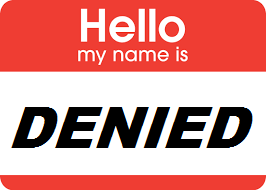Patheos doesn’t have any site-wide style guide for bloggers, but, over at The Friendly Atheist, Terry Firma announced a style change that will apply to that blog, specifically. The contributing bloggers over there are going to stop referring to ISIS as ISIS, ISIL, the Islamic State, or anything else except Daesh.
Here’s the passage Firma quoted from the Boston Globe to explain the decision, interspersed with his own comments:
The term “Daesh” is strategically a better choice because it is still accurate in that it spells out the acronym of the group’s full Arabic name, al-Dawla al-Islamiya fi al-Iraq wa al-Sham. Yet, at the same time, “Daesh” can also be understood as a play on words — and an insult.
Depending on how it is conjugated in Arabic, it can mean anything from “to trample down and crush” to “a bigot who imposes his view on others.”
Perfect!
Already, the group has reportedly threatened to cut out the tongues of anyone who uses the term.
When you put it like that… we’re in. A little daesh of gofuckyourself ought to do these people good.
Firma’s choice rubs me the wrong way. I think it’s good to hold to calling your enemies by the same name they use for themselves, even if your enemies are awful. For one thing, even if it were definitely ok to make an exception for ISIS, this is the kind of choice that’s hard to compartmentalize.
There will always be enemies who don’t seem to deserve the dignity of a name (or of having their name reserved for them, and not appropriated as a gross-out sex term).
Refusing to use someone’s own language for themself, whether it’s the choice of name, pronoun, adjectives, etc is a choice to make it unreasonably hard for them to carry on a conversation with you. And, if you think they’re doing something wrong, you want them to speak to you, so you have a chance to persuade them to change their mind.
In addition to making it hard for your enemy to speak to you, you’re also making it harder for you to speak to your enemy. You’re adding a side argument to your agenda (“How should I be addressed”) that will distract from the heart of your disagreement, and you’re cultivating the habit of not engaging the enemy in good faith or listening to their position. Plus, if you pick an insulting manner of address, you make it harder for your opponent to grow beyond the (possibly-currently-accurate) description or for you to notice if they have.
Firma, in fairness, probably doesn’t expect ISIS to be reading his blog — he’s not writing for his enemy. But engaging in the tactic at all gives cover to other people who refuse to fight with people by name (whether by stubbornly using a trans person’s birth name, or by peppering a post with insulting diminutives for anyone).
And I think we sometimes forget how far the influence of online speech can extend. A reader can pick up a habit from a post written for the choir and use it against the person they know in real life, where it wounds. Someone wandering through (maybe just to hate read) sees the uncharity of refusing to use someone’s name, and brushes off the next person who reaches out to them kindly, because they’ve learnt a flinch from all their other interactions with our group.
In the heat of a disagreement, most of our feelings already move us away from empathy — we don’t need to further limit ourselves by denying our opponents their own names.

















